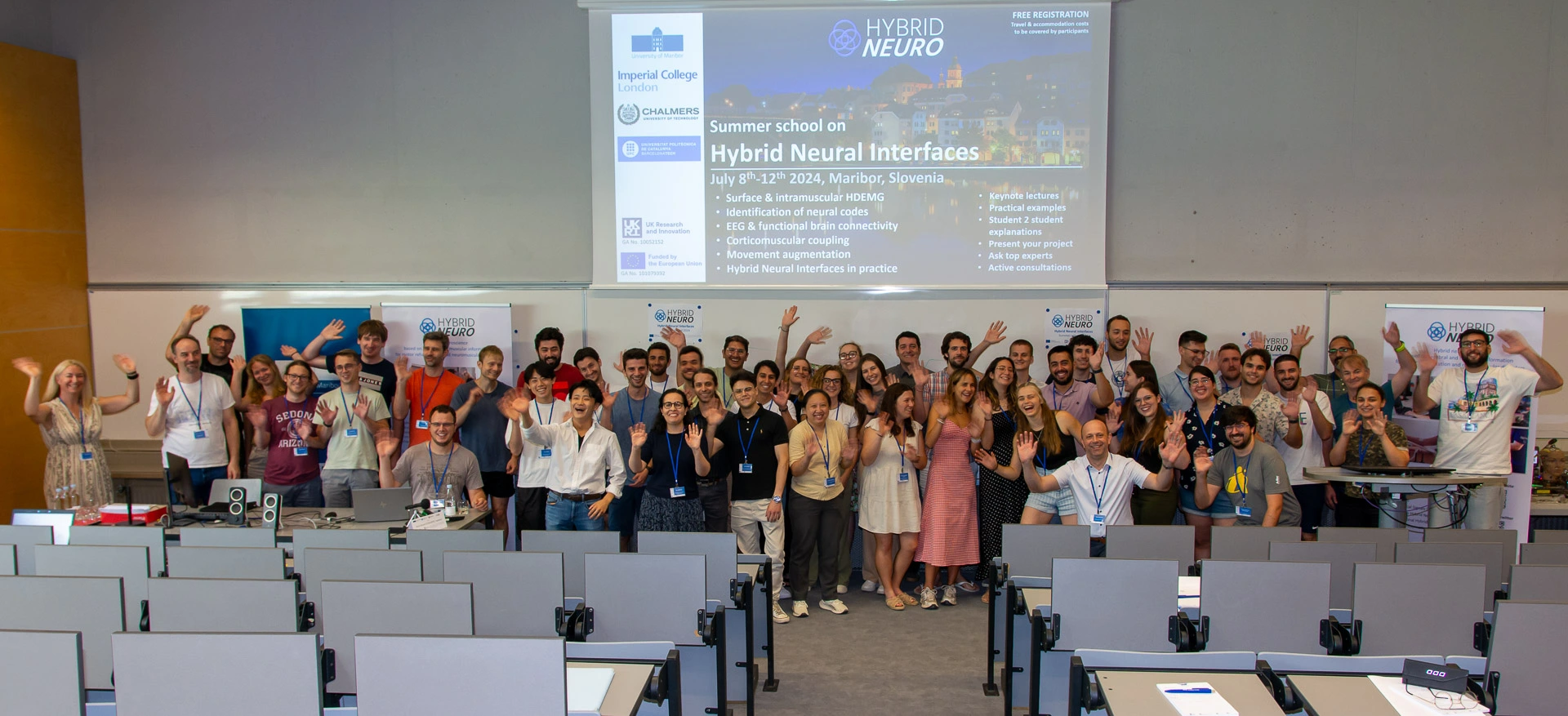Recap of the Summer School - Hybrid Neural Interfaces, Maribor, Slovenia
The 2024 edition of the Summer School “Hybrid Neural Interfaces - HNI2024” concluded with great success. Organized by the team of University of Maribor, the Summer School was held from the 8th to the12th of July at the Faculty of Electrical Engineering and Computer Science. It brought together a community of top biomedical engineering experts, post-docs, and PhD students.
HNI2024 attracted over 60 keen attendees in person and more than 20 participants online from various universities in Europe and abroad (Canada, Indonesia, Iran, Japan…). The central theme revolved around different types of neural interfaces, including HDEMG (surface and intramuscular), EEG, kinetic, and ultrasound.
The event began with an opening session by Prof. Dr. Aleš Holobar, coordinator of the HybridNeuro project, who welcomed everyone and set the stage for the week.
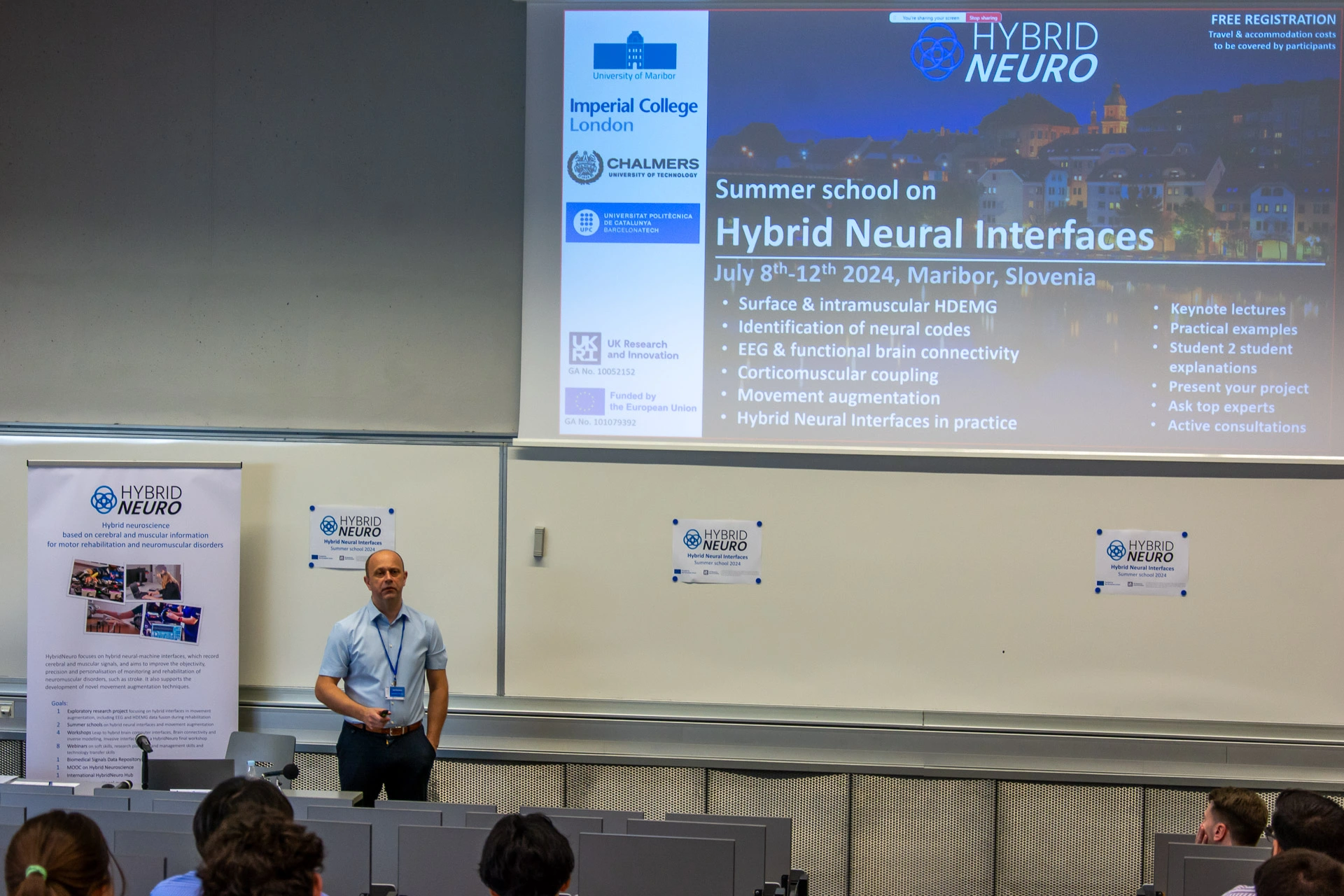
Keynote Lectures during the Summer School
Throughout the week, participants engaged in keynote lectures and panel discussions provided by experts in the fields of movement augmentation, methods for assessing functional brain connectivity using EEG, state-of-the-art MU identification pipelines, use of multichannel intramuscular EMG, muscle control mechanisms, motor-cognitive interventions on gait and balance, use of neural interfaces in managing movement disorders, and non-invasive solutions for assessing the neuromuscular activity using ultrasound.
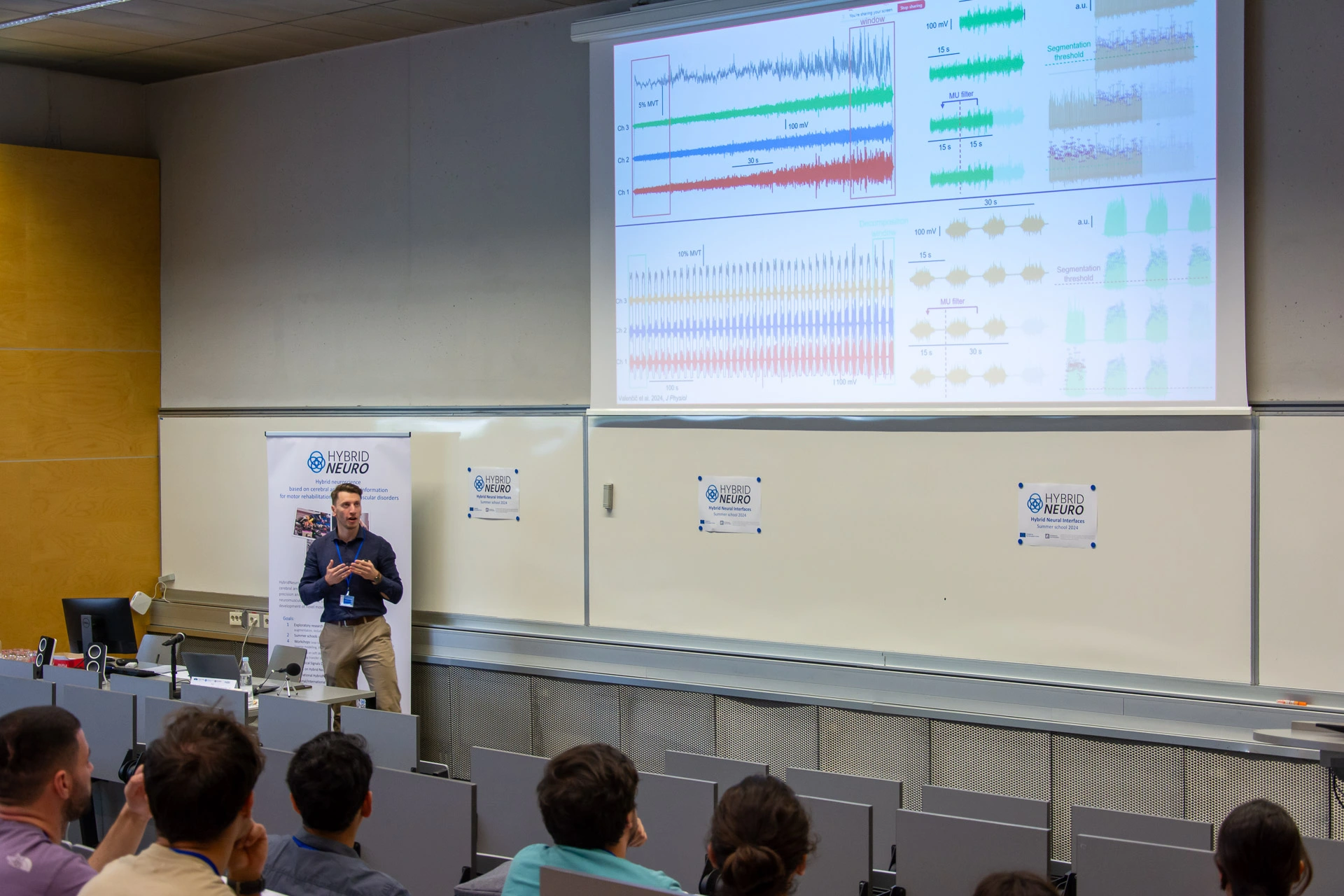
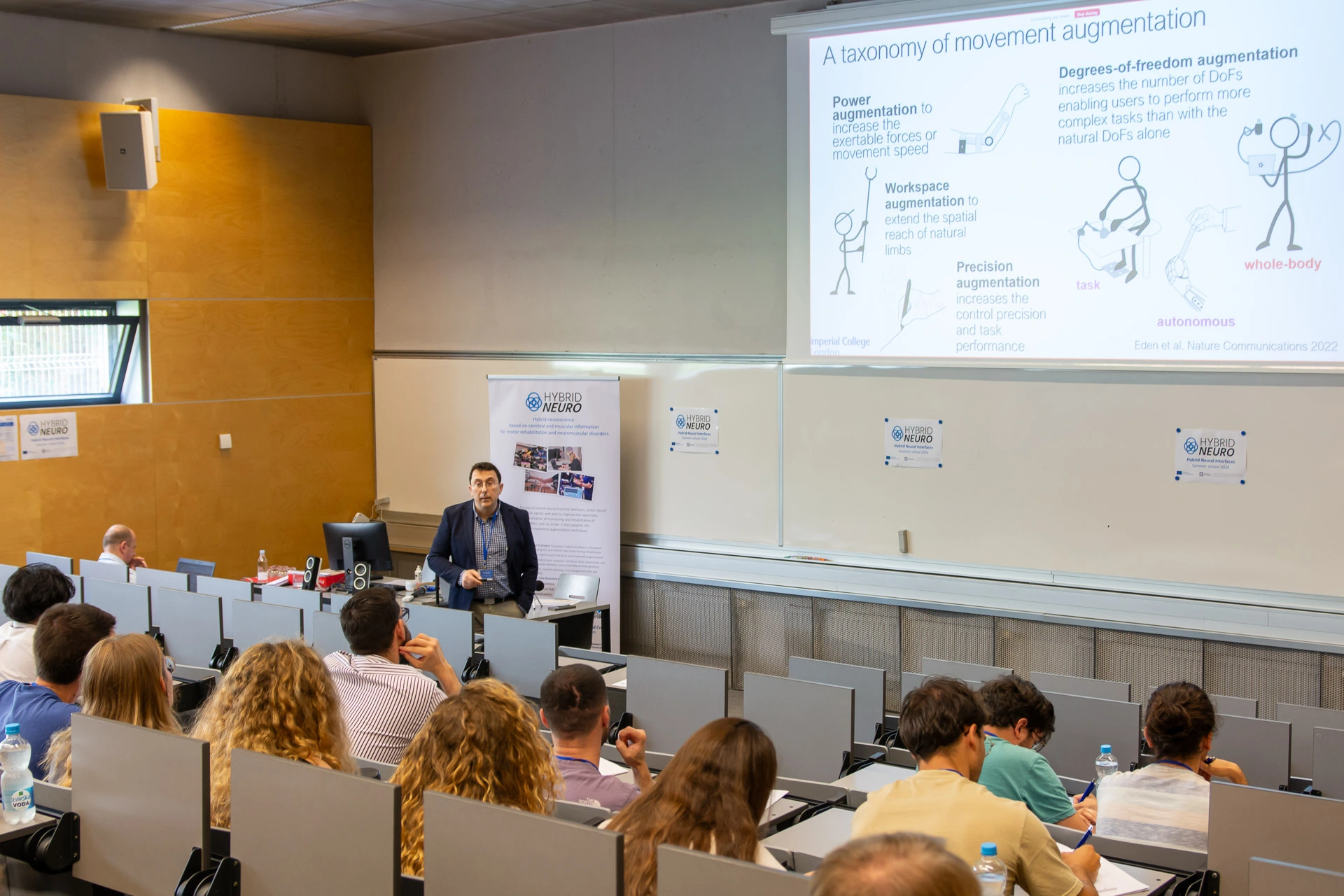
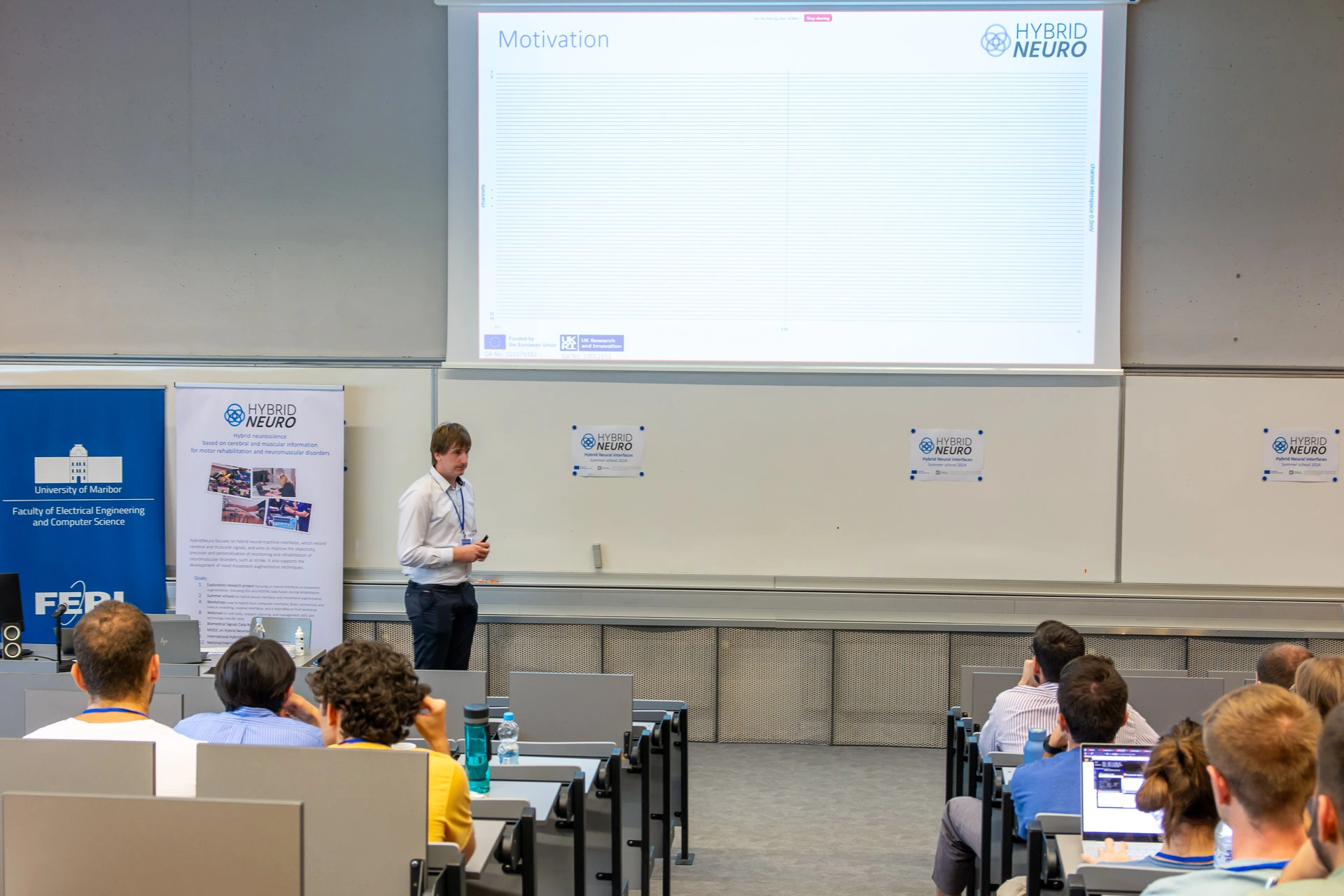
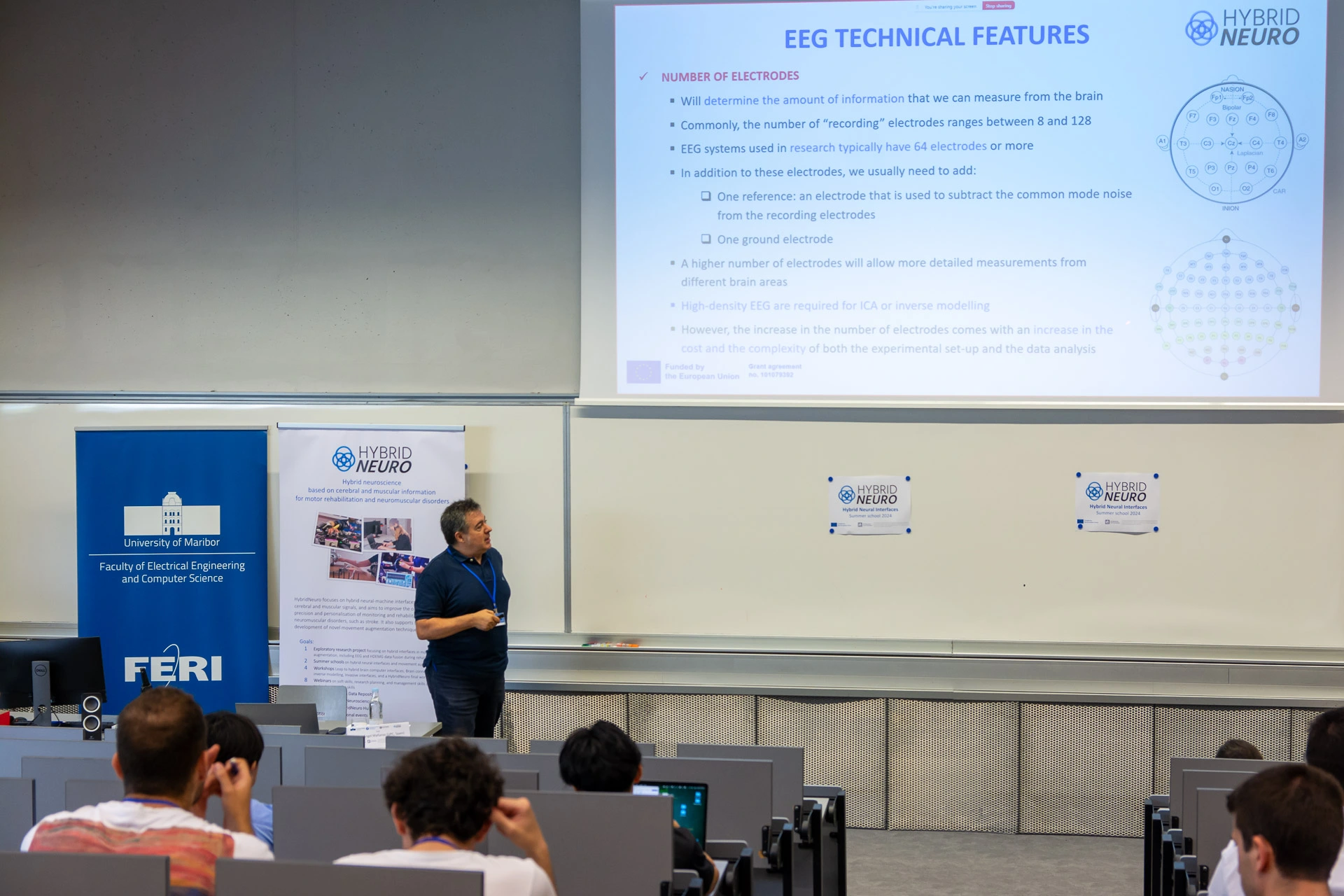
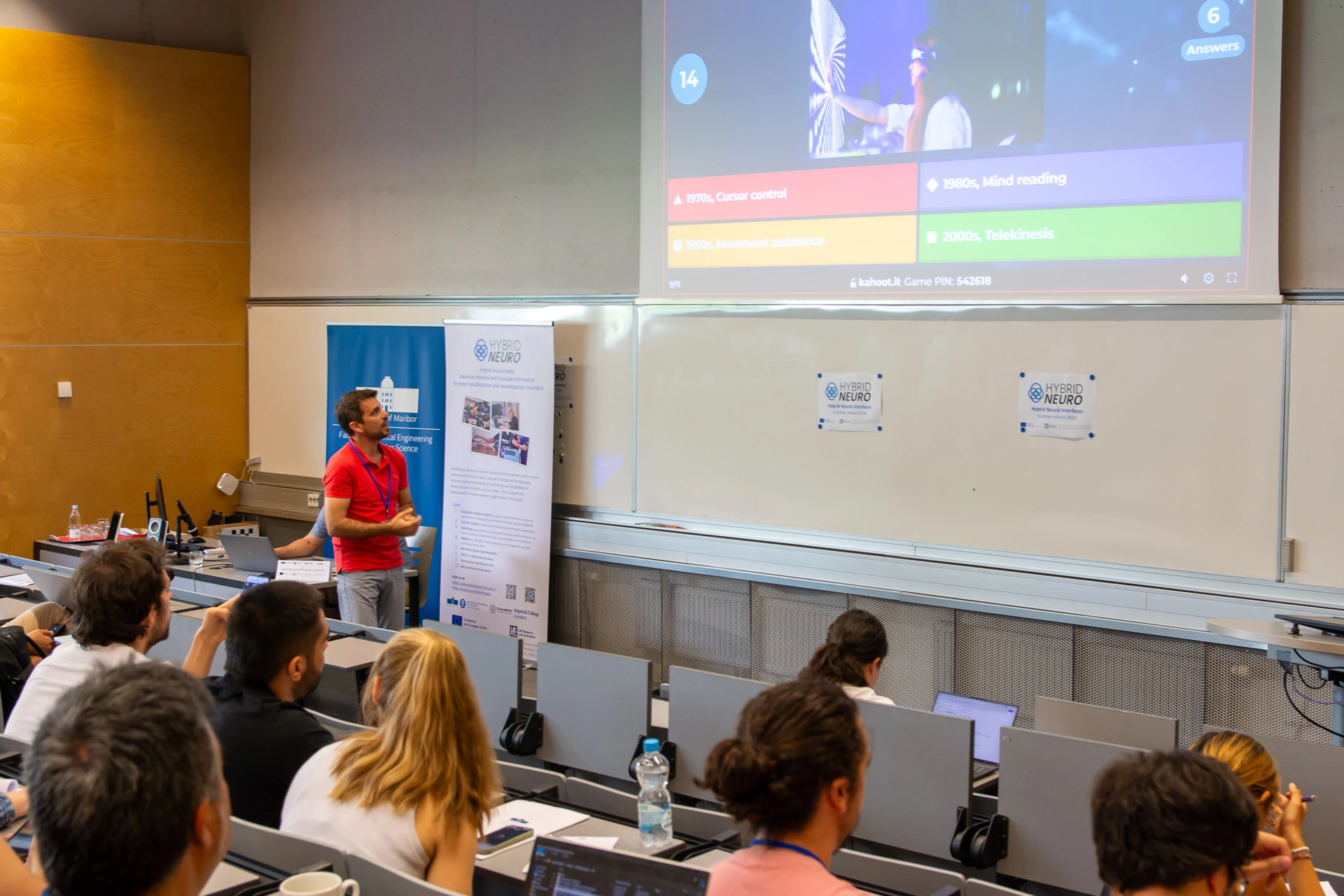
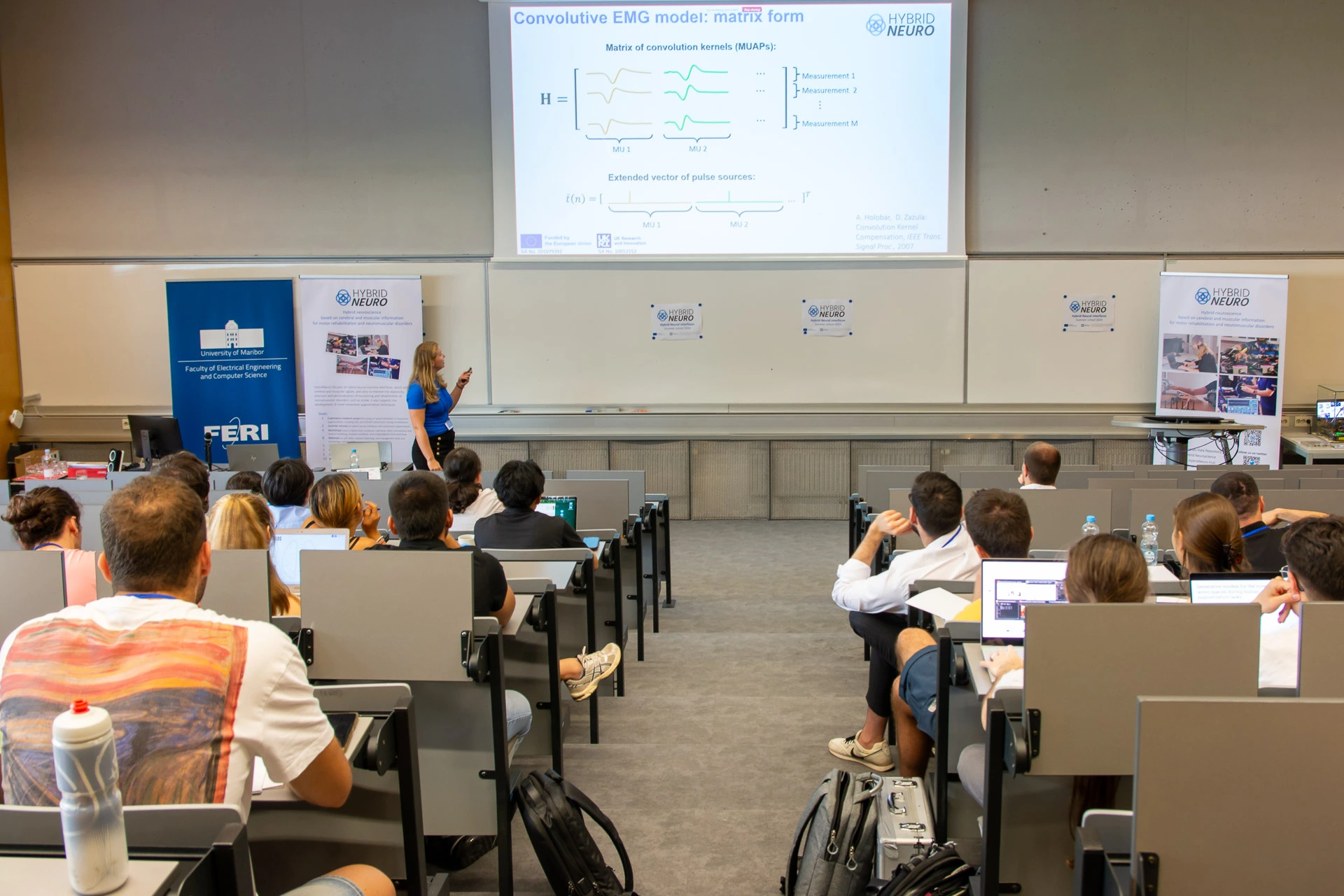
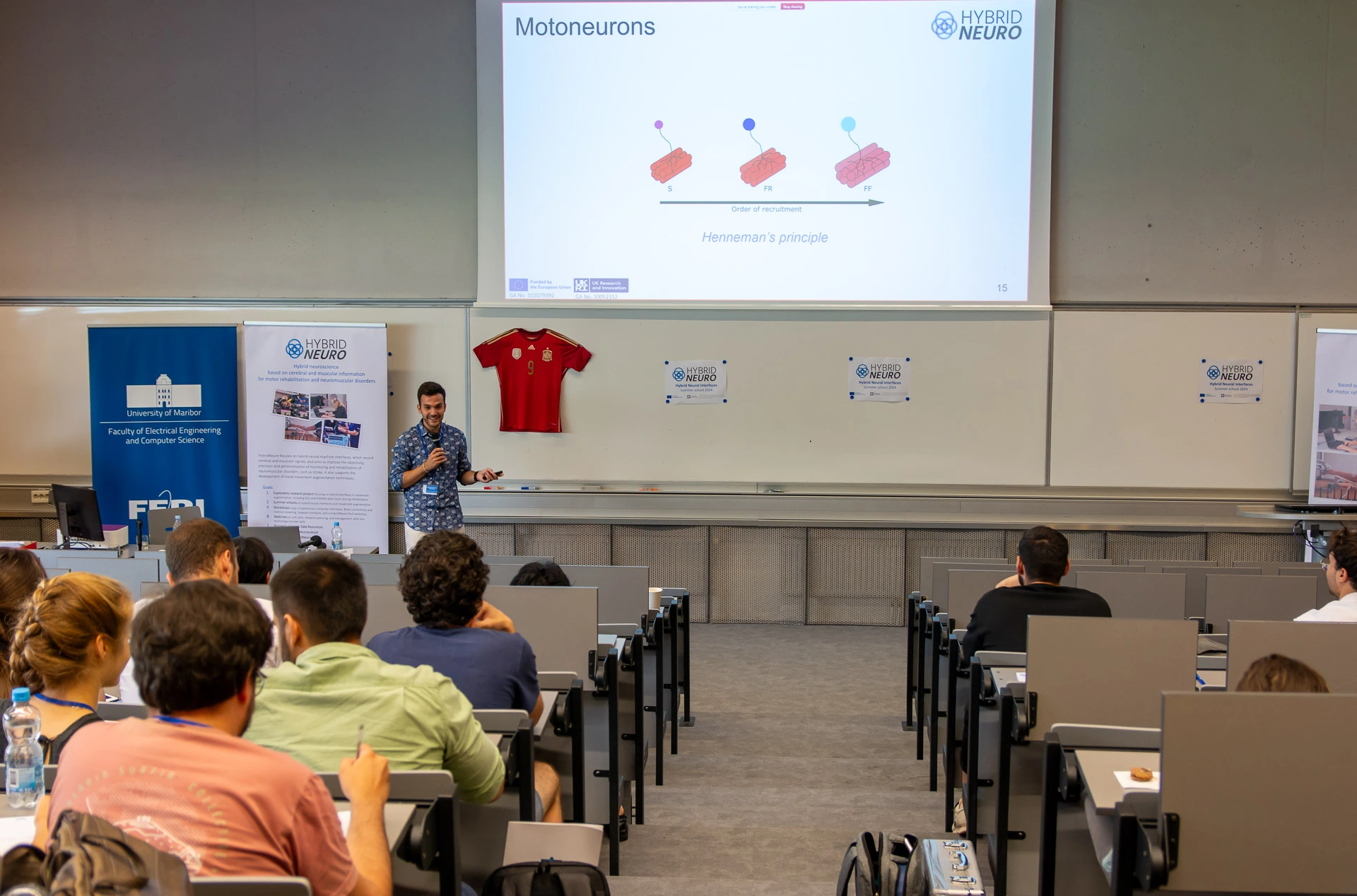
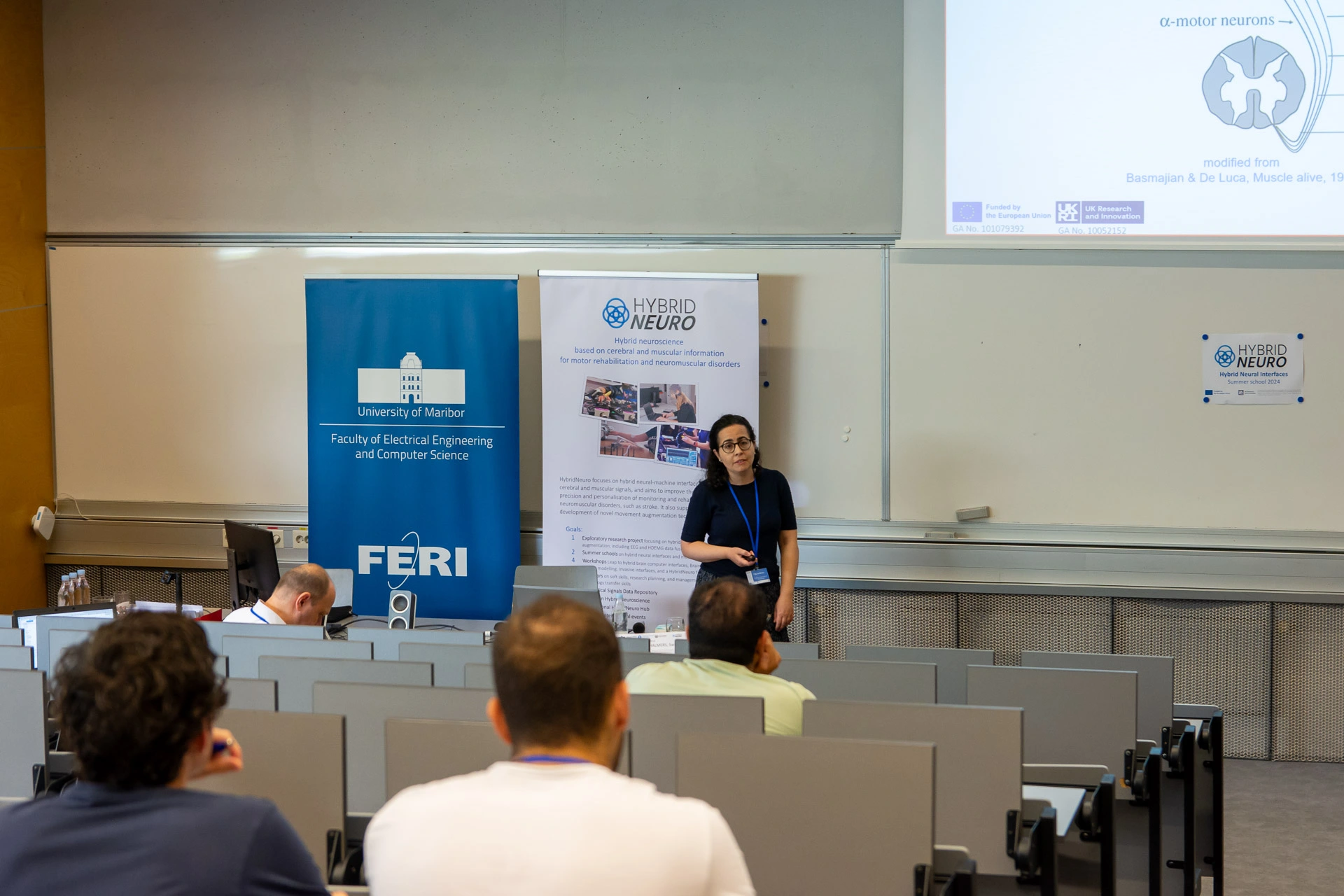
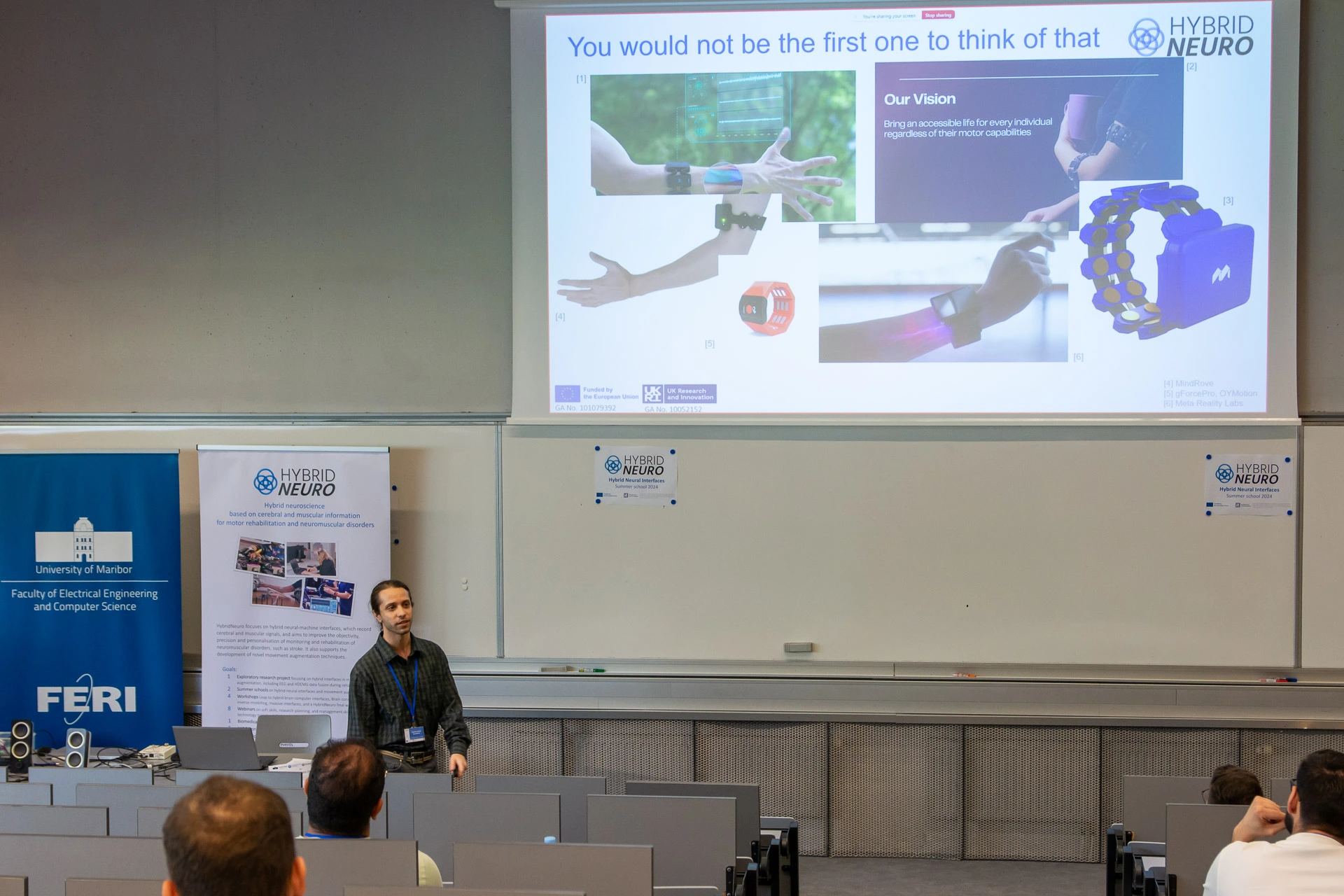
Hands-On Training, Research Presentations & Poster Sessions
Afternoon sessions focused on hands-on training and the exchange of vital know-how in signal acquisition, quality control, and processing. In addition, sessions showcased the combination of kinematic interfaces with surface EMG to enhance movement performance and rehabilitation.
Participants had the opportunity to present their research or project findings. A poster session was held where participants presented their work in a visual and interactive format, receiving feedback from experts and peers. These sessions facilitated knowledge exchange and offered valuable insights for improving research methodologies and outcomes.
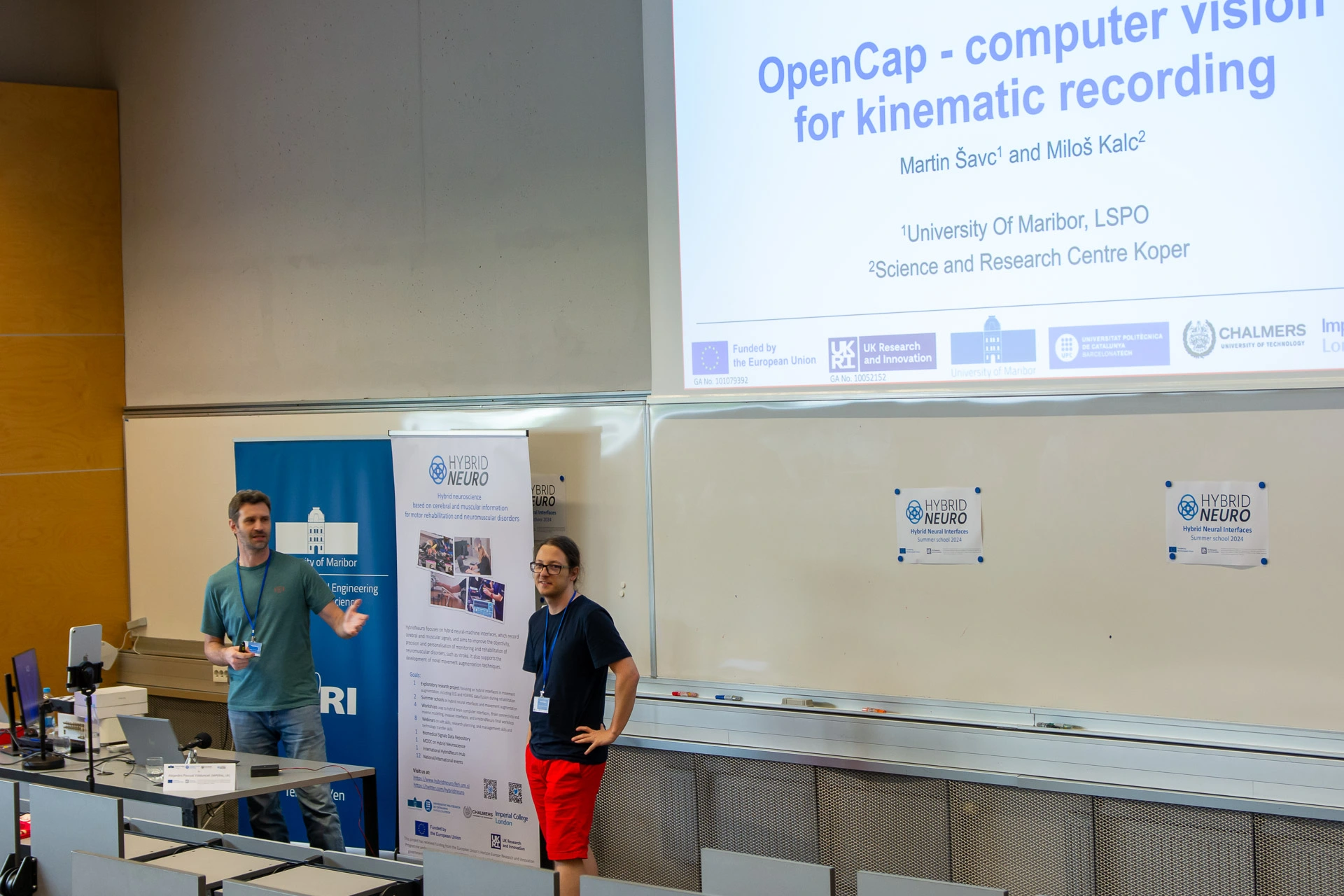
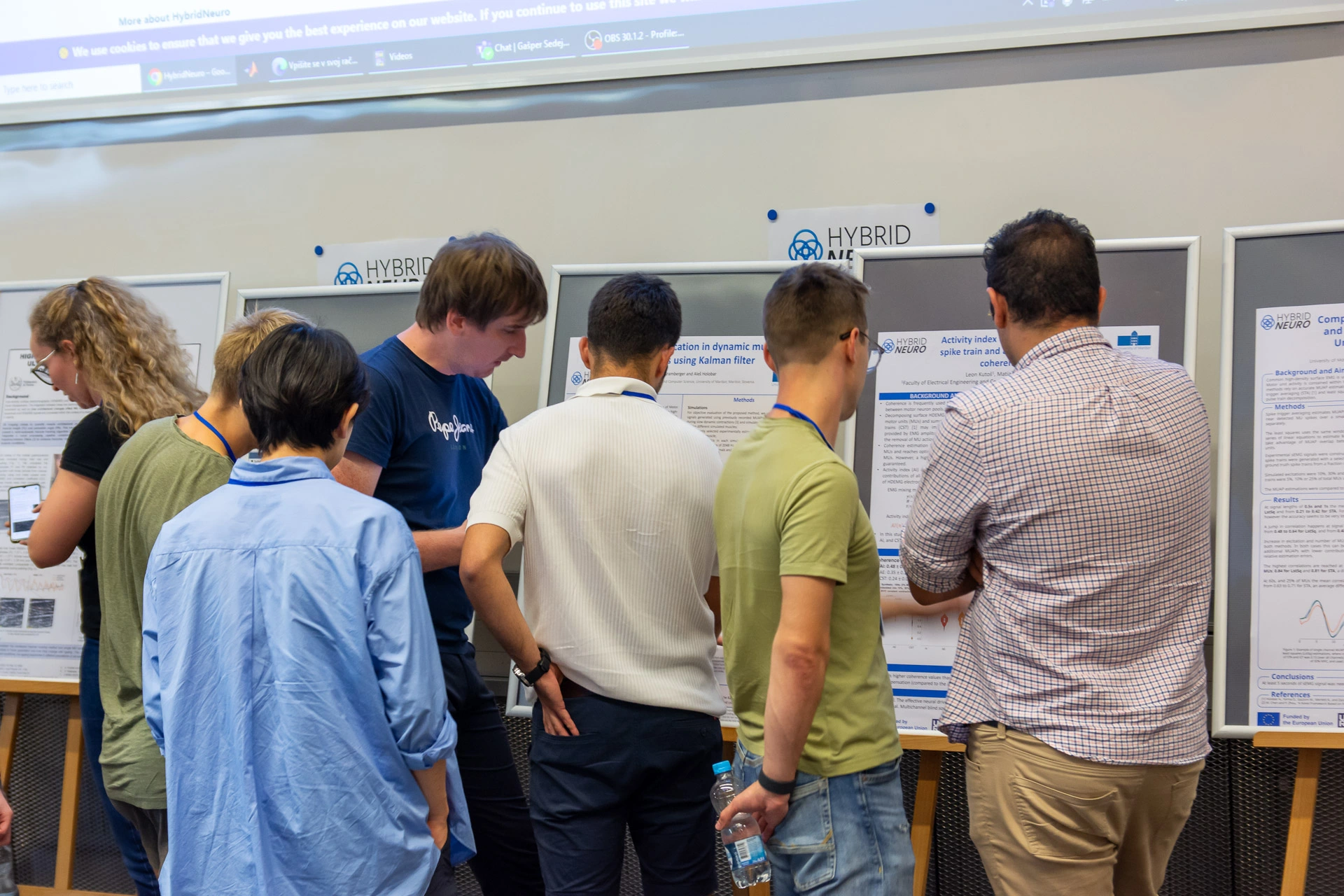
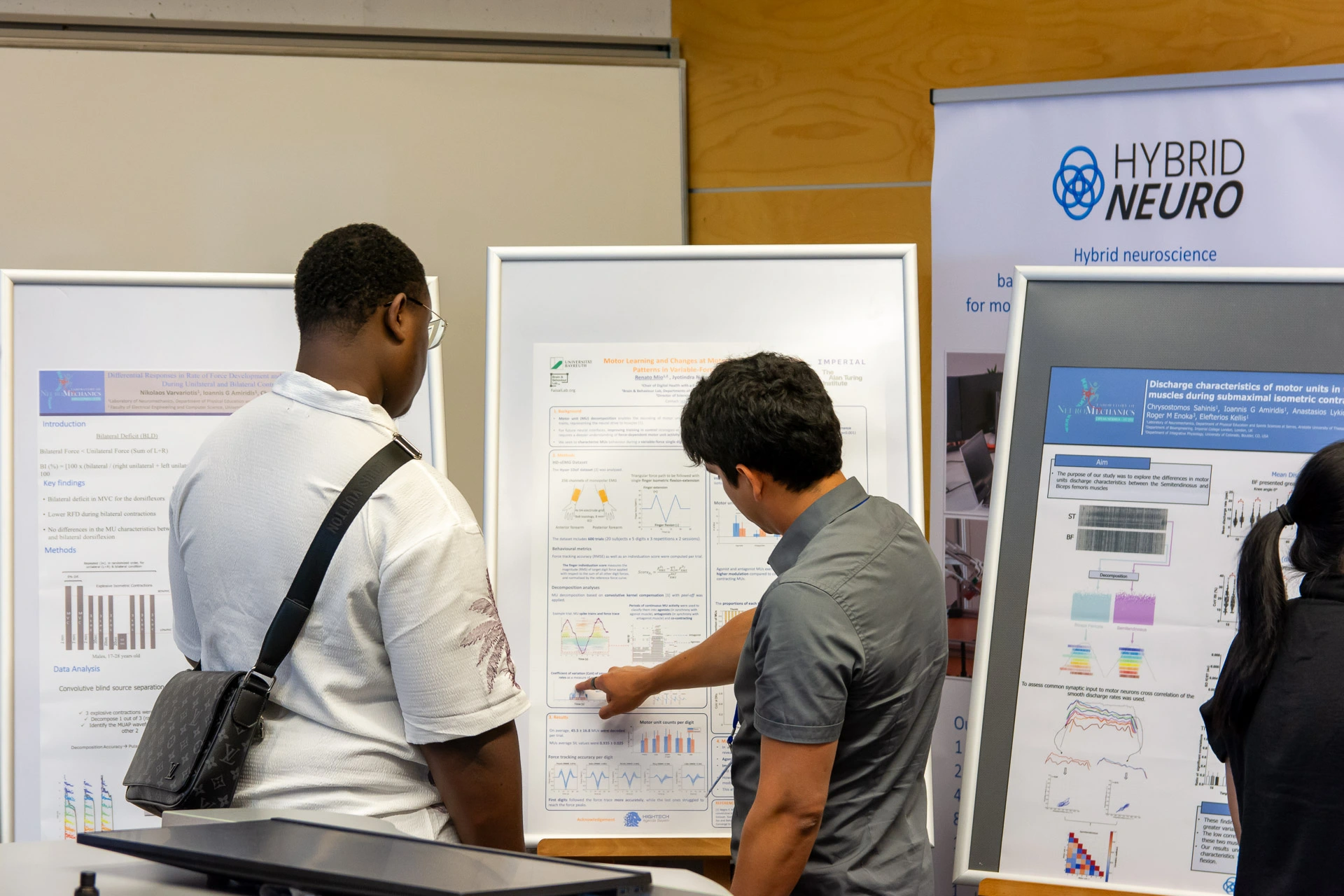
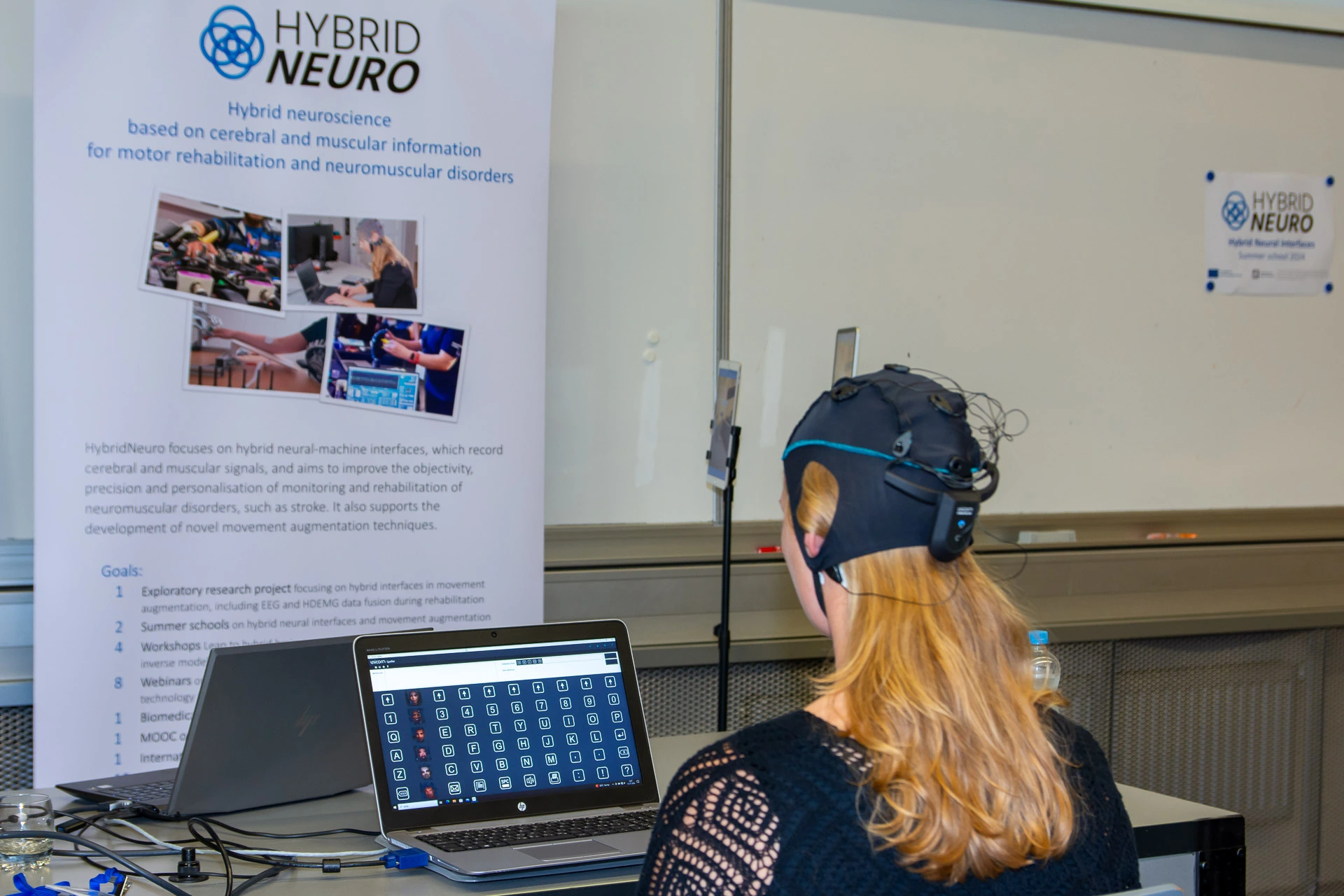
Parallel Sessions
Parallel activities with HybridNeuro project partners and UM managerial staff revolved around the development of the International HybridNeuro Hub Roadmap and a round table discussion focused on aligning the joint R&D strategy. Exploring possibilities for initiating new collaborative projects, to be prepared with shared input and interest in order to secure funds for successful continuation after the lifetime of the HybridNeuro project.
HybridNeuro Hub Day
The session started with an introduction to the HybridNeuro Hub, featuring short presentations from invited stakeholders. The essential stakeholders - Experts in biomedical engineering and signal analysis for neuromuscular rehabilitation and human movement (UM, Imperial, UPC, Chalmers), Start-ups (Booty Sole, Humanodoro, GridTech), SMEs (TMG, Norik, OT Bioelettronica Torino), Clinicians (UKC MB, UKC LJ, Soča Rehabilitation Centre), Representatives of EU regulatory bodies for medical devices (Timian Consulting), Regional development agencies (RRA Podravje, Bistra-Ptuj), Technology transfer offices, and Technology science parks (Katapult & Tehno Park Celje) - gathered, to discuss successful valorization of knowledge from academia to clinical and industrial settings. This segment provided an overview of collaborative efforts and emerging innovations in neurotechnology.
A round table discussion addressed the challenges in the (co)development and commercialization of biomedical technologies. Experts shared their experiences and offered strategies for navigating regulatory, financial, IPR and market-related hurdles.
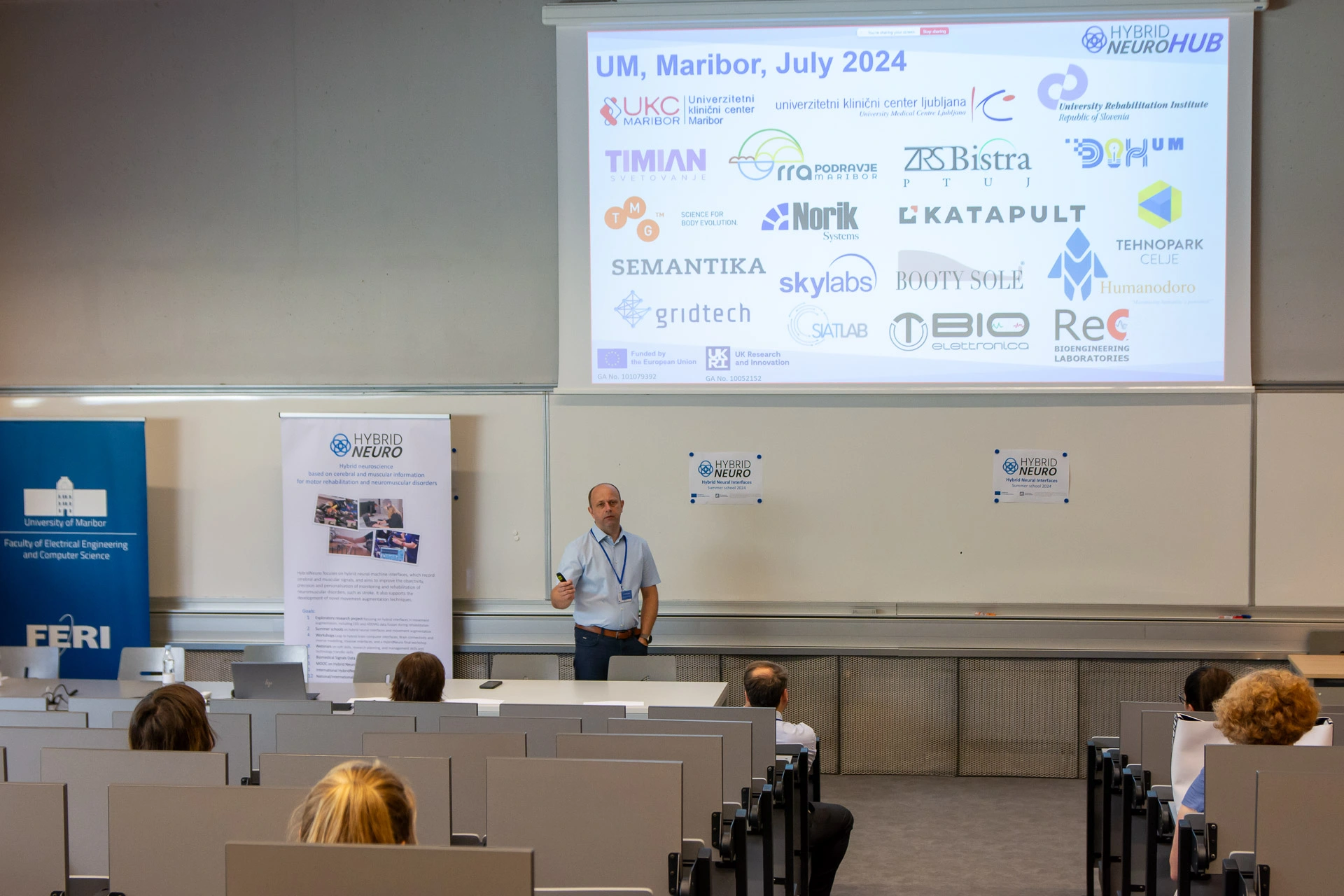
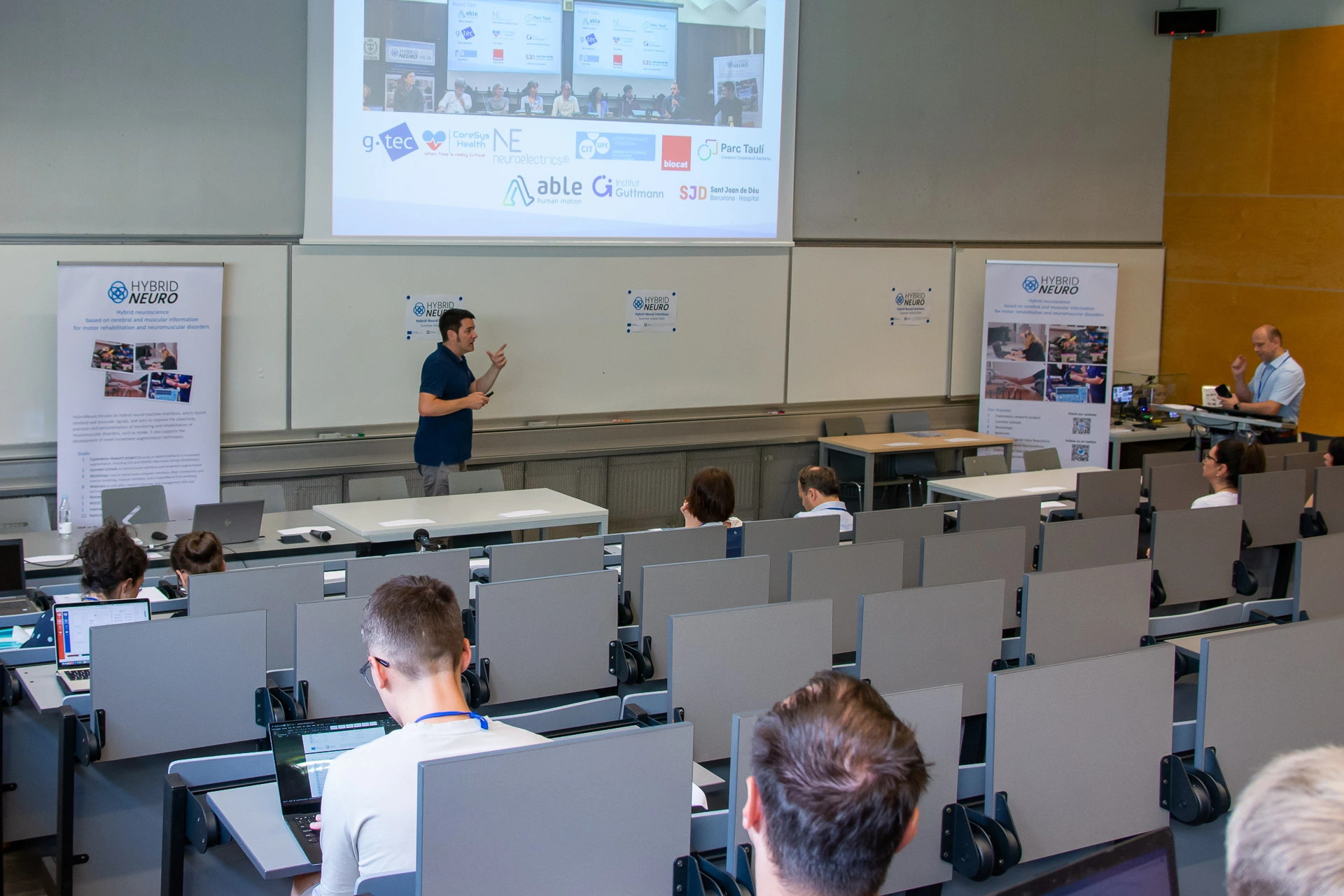
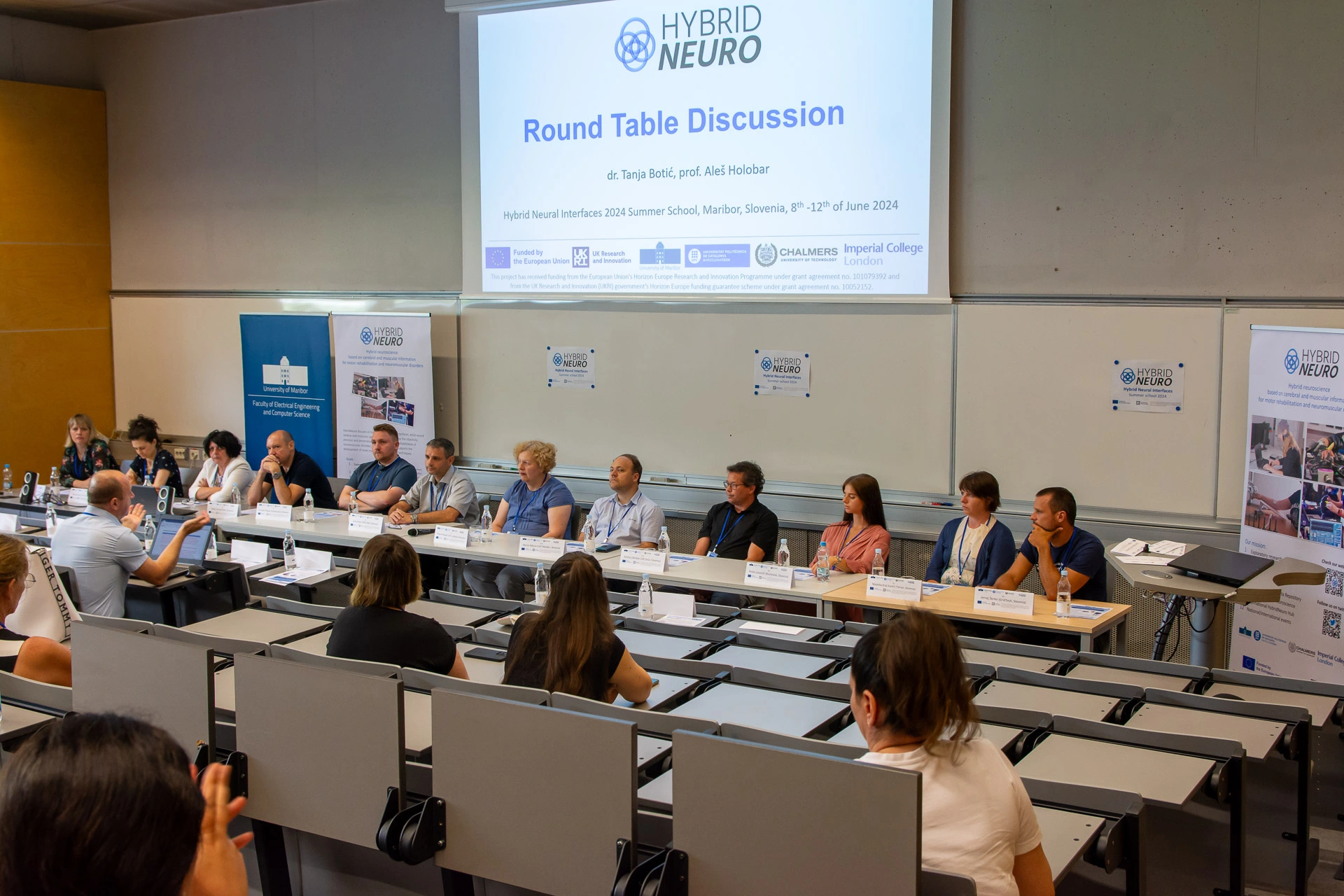
Social Activities & Closing Event
Each day concluded with various social activities for attendees, fostering a collaborative and engaging environment. Participants had the opportunity to explore the Maribor city, gaining insights into the local culture and academic environment.
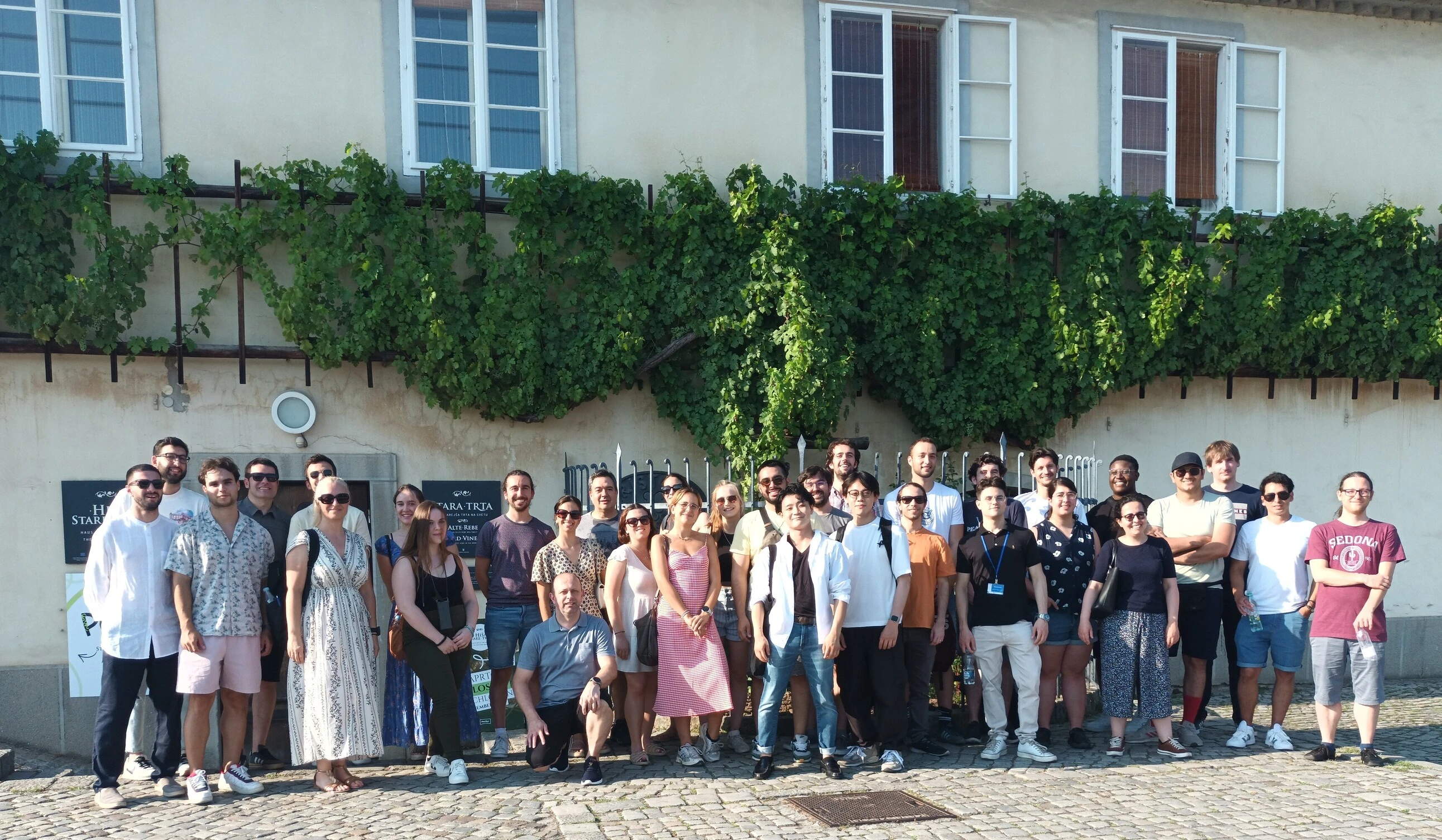
The closing event celebrated the achievements of the Summer School. The 2024 edition was a testament to the importance of such initiatives in fostering knowledge and empowering the next generation of biomedical engineers in the field of neuromuscular investigations and innovations.
